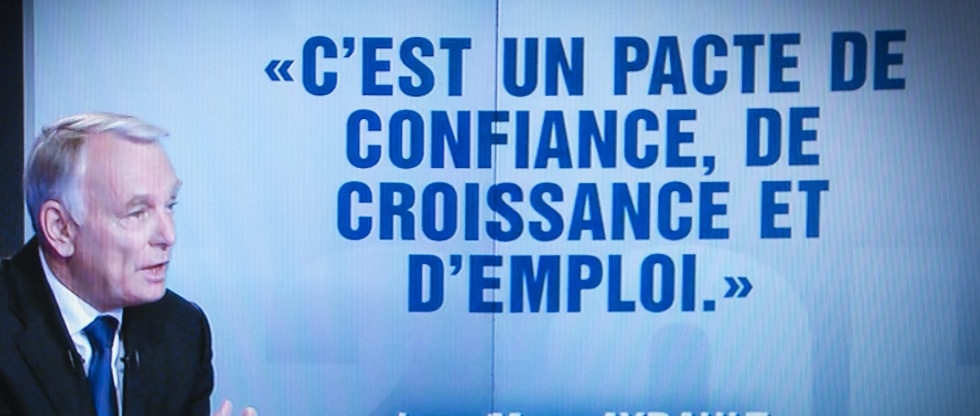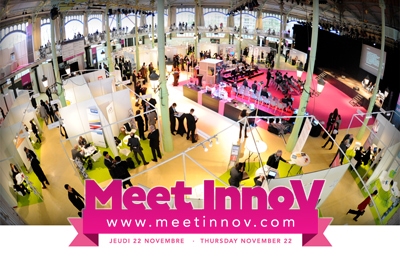Start-ups always have Americanization. They are often surprised by the cultural differences in business practice on both sides of the Atlantic. Pierre Morel, Professor atESCP Europe International Affairs - Intercultural Issues, gives some ideas on how to approach these promising markets in the best conditions.
Doing business with Americans is both simple and complicated. The relationship is easy because the two nations, France and the United States, share a common history and a wide range of common references. In addition, globalization familiarizes us - sometimes to our defending bodies - with behaviors of American origin. It is complicated because, beyond the obvious similarities, the French face fundamental, even irreducible, differences with the Americans. It is interesting to analyze cultural differences when mere politeness or good will are no longer enough to "get the message across", when the temptation is to say: "I absolutely do not understand this representative of another culture".
The following is a list of topics that experience shows are often a source of conflict and tension. This list maps the specific relationships that exist between the Americans and the French. It would be different if one considered the relationship between the French and other countries.
 Anglo-Saxons: do not use this term for everything. It doesn't mean much to Americans.
Anglo-Saxons: do not use this term for everything. It doesn't mean much to Americans.
It often happens that the French put all Americans in "the same bag" as the Anglo-Saxons, with the British and sometimes the North Germans and the Danes.
For Americans, the word does not - obviously - have the same connotation. It refers to the members of tribes - Angles and Saxons - who, in the course of history, migrated to northern Europe. Any American of African, Asian, Slavic or Mediterranean origin - the majority of Americans to this day - would probably reject this label.
The French do well to avoid this term in their reports. It is as common and loaded in our country as it is rare and specific in theirs.
 The ultraliberals: if you are in favour of free trade, do not present yourself as a liberal but rather as a free trader, conservativeor even libertarian (the true liberal socially and economically).
The ultraliberals: if you are in favour of free trade, do not present yourself as a liberal but rather as a free trader, conservativeor even libertarian (the true liberal socially and economically).
A French Liberal does not stand for the same ideas as an American Liberal. The former is socially conservative and free trader in economic terms. For him, the State should confine itself to regulating the markets. The second, on the other hand, has progressive social ideas and wants the state to intervene decisively to correct the markets.
Those we call the (ultra)liberals in our reference system are called in the United States the conservatives, the Republicans. And if one says of an American that he or she is a liberal, one has to understand that this is a person whose heart beats well to the left socially and politically - a social democrat perhaps.
 Transparency / Hypocrisy: with the Americans, transparency is the rule of the game.
Transparency / Hypocrisy: with the Americans, transparency is the rule of the game.
Americans pride themselves on always working to make their society more transparent. Publishing company accounts, revealing people's private lives, posting compensation, strong penalties for insider trading, investigating all kinds of things to determine the truth, encouraging some form of whistle-blowing (whistle blowers), all information is good to disclose. Lying is severely punished.
The French are tempted to interpret this behaviour as a manifestation of naivety or hypocrisy. This attitude can be caricatured by the adage "To live happily, let's live hidden". The Americans say instead that "all truth is good to tell". They are convinced that efficiency in social and economic life depends on the free flow of information.
To make an informed choice, an economic agent must have all the information available. The United States is the champion of civil liability lawsuits. The system severely punishes the person who, during a negotiation, hides an important element likely to influence the other party's decision. American-style transparency attaches a label not of morality, but of efficiency.
 Diversity / centralism: our centralizing and harmonizing reflexes are not well perceived. Americans are very attached to their differences, even if we think they are not logical..
Diversity / centralism: our centralizing and harmonizing reflexes are not well perceived. Americans are very attached to their differences, even if we think they are not logical..
By tradition, the French are great centralizers: they love great universal designs, the uniqueness of the rule, egalitarian treatment, integration and solidarity. They imagine that the United States operates in the same entity. That is not the case. The term federation does mean that the United States is composed of 50 states with broad powers.
For example, there is no commercial company - apart from some banks - that can be described as American. Companies are subject to the law of the state in which their registered office is located. Each state has its own education system (from primary to higher education), in which Washington has no right to intervene. The list of the particularities of states is very long... This is why it is often pointless to recommend French solutions or remedies to an American situation.
It can almost be said that, as a matter of principle, the solutions that would prevail in France have no chance of working in the United States.
 Informality of manners / Rigour of the contract: it is better to rely on the words Americans use, rather than their friendly attitude.
Informality of manners / Rigour of the contract: it is better to rely on the words Americans use, rather than their friendly attitude.
The French often appreciate the informal American manners, the easy familiarization, the use of the first name, the Friday wear in the offices,... Yet, they are then surprised by two behaviors:
- Their apparent joviality during commercial or social contracts turns into a certain indifference afterwards. They are then accused of superficiality. What the French take for manifestations of friendship is, in fact, a demonstration of minimal civility in the United States. An American makes a point of appearing open and smiling and tends to trust people a priori.
The French, for their part, have a natural tendency to remain on their guard and only give their trust after a long trade.
One must therefore avoid thinking that the relaxed and joviality of one's American partner means that everything is going the way he wants it.
- Business toughness", in spite of this open-minded attitude. An American will stand up for himself, even if his culture demands that he be affable.
The laws of the market / the French exception: the market for an American is the ultimate judge, not the opinion of the consumer.
How to define what is good, beautiful, tasteful, fair, acceptable?
Americans and French use different methods to determine this. The former trust the market. If a product (or an idea) is successful, that is, if the public loves it, then it is good, of good quality. If, on the other hand, it does not sell, then it can be concluded that it is bad. The market's decision is sovereign.
The French support the idea that the market is not always the best arbiter. According to them, tradition, ancestral know-how, expert opinion, political preferences, ... can thwart the laws of the market. An executive can say, without making the French smile, that he has an excellent product, but that he can't sell it. The Americans will immediately think that there is a contradiction between the terms.
The Americans have developed a popular culture that must reach the greatest number, while the French continue, in many cases, to defend an elitist culture.
It seems natural for the French to impose quotas for French films in the media, to insist on defending appellations of origin, to want to treat cultural goods differently from other goods in WTO negotiations, to protect Danone from being taken over by Pepsi Cola, etc. For their part, the Americans (who - it is true - do not feel threatened in the same way) have less of a reflex to mix market judgment on a product with cultural preference.
 Win/Win vs. Zero-sum game: Americans will always seek to turn an apparent blockage into an opportunity for everyone to win.
Win/Win vs. Zero-sum game: Americans will always seek to turn an apparent blockage into an opportunity for everyone to win.
The Americans are convinced that a negotiation must lead to a solution favourable to both contracting parties. The French tend to view a negotiation as a zero-sum game. There must be a winner and a loser in their minds.
This affects the style of negotiation. Normally, Americans view a negotiation as a collaboration and the interlocutor as a partner. In negotiating with them, the French have an interest in placing themselves in this situation, rather than taking them as adversaries.
 Rules of the game / game on the rule: for the Americans, it is better to respect them to the letter; one does not change the rules of the game during the course of the game.
Rules of the game / game on the rule: for the Americans, it is better to respect them to the letter; one does not change the rules of the game during the course of the game.
The French find the Americans rather rigid and often pass for unreliable in their eyes. The rule is not quite the same in both countries. In France, the rule sets the broad outlines and is open to interpretation. In the United States, the rule is taken literally.
The French rule can be read at two levels: letter and intent, form and substance. A Frenchman prides himself on being able to tell the difference between the two. He wants, of course, to respect the second level, the substance, but does not want to feel trapped by the form. He uses his intelligence to interpret the form in order to get to the substance.
Americans do not make that subtle distinction. For them, there has to be a fit between the two levels. A rule means no more and no less than what it says. The distinction we make is not relevant.
The reactions will therefore be quite opposite. It can be hypothesized that this difference stems from the fact that the Americans cultivate a culture of contract between equals, whereas the French have, for centuries, maintained class relations. In the first case, equals agree on what should be done and are free to change their agreement at a later date if it is not satisfactory. In the second case, in France, the rule is traditionally imposed from above, by dogma, by the law, and it is in the interest of the ordinary citizen to deal with it rather than to challenge it head-on.
 Use of language: honest exchange of information. Not knowing is not a disgraceful sign of weakness for Americans.
Use of language: honest exchange of information. Not knowing is not a disgraceful sign of weakness for Americans.
Relationships are especially about language. To do business, you need to converse, exchange words and writings, and negotiate. The Americans and the French do not see the process in the same way.
Americans don't like to talk for nothing and see conversation as an exchange of useful information. The French see conversation more as a social game that allows the other person to shine and to situate him or herself socially.
Americans readily admit their ignorance when they do not have an answer to a question. The French, for their part, have the art of embroidering around the question to find an answer. At home, staying here could be interpreted as a sign of incompetence, lack of culture, stupidity.
Americans are less likely to use second degree or irony. At home, an honest question requires an honest answer. A question that is asked must be answered in detail, and it is not easy to get away with a pirouette.
As a result, the two sides do not always see the conversation in the same way and do not always hear the same result. When we" let's beat around the bush "Americans may interpret our style of conversation as superficial or even arrogant. We'd be good talkers, yes, but unreliable.
 What we think, what we say, what we do: the Americans give what they think, what they say, what they do. Any freedom from this principle seems suspicious to them.
What we think, what we say, what we do: the Americans give what they think, what they say, what they do. Any freedom from this principle seems suspicious to them.
The French do not always feel the imperative need to harmonize the three registers of thought, speech and action. They easily tolerate the existence of discrepancies between what they think, say and do, without being a mark of dishonesty, hypocrisy or wickedness. But the normal game of business is one of flexibility and even intelligence.
Americans, on the other hand, like to say what they think and do what they say. They find a virtue in it, that of honesty and frankness.
In the negotiations, they tend to accuse the French of not making clear what they think, of not making clear what they are going to do, and then of not carrying out what they said. For them, an interesting and useful meeting leads to a clear decision. Whereas for us, the interest of a meeting is to brainstorm, to consider alternatives, and then to see how everyone will be able to position themselves in relation to all this.
************************************
 Dealing with Americans exposes us to the risk of cultural misunderstandings as described above. However, globalization has meant that the French have integrated many elements of American culture and that Americans are more familiar with the customs and habits of other cultures than in the past.
Dealing with Americans exposes us to the risk of cultural misunderstandings as described above. However, globalization has meant that the French have integrated many elements of American culture and that Americans are more familiar with the customs and habits of other cultures than in the past.
It is in situations of high tension and irritation that one must ask about the causes of misunderstandings. These situations are often, but not always, cultural. Exploring cultural differences helps to map the perceptions of each culture, to identify areas of non-recovery and to better deal with the conflicts that may result.
{Jacuzzi on}










